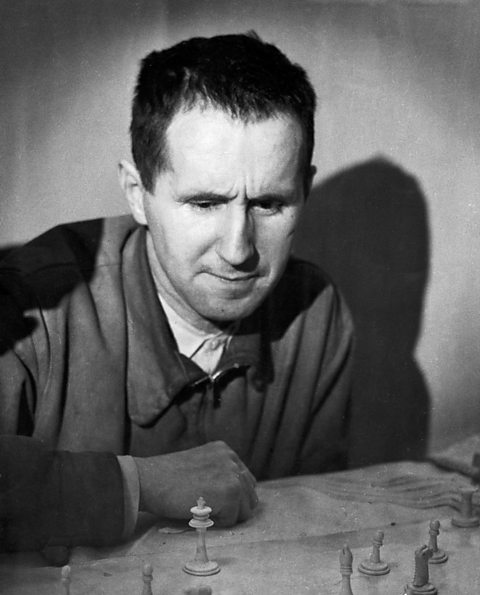Epic theatre and political theatre
Epic theatre

Bertolt BrechtA German theatre practitioner associated with Epic theatre. is closely linked with the Epic theatreA style or movement of theatre that focuses on political ideas, ensuring that the audience are engaged and questioning the action. Bertolt Brecht’s ideas are usually categorised as Epic theatre. style, and there are a range of elements associated with it. Epic theatre often features a non-linearNot in order. plot and episodicA series of scenes, usually connected. Often they can be watched in any order and still make sense. moments that, when put together, would create a montageA sequence of scenes in a way that is not naturalistic. effect. A montage is a series of short and separate scenes grouped immediately after each other, with the contrast between scenes highlighting important issues in the story and allowing for a focus on small details. It can be useful in this style to experiment with the order of scenes to find what works best.
The narrative communicated might be told from the viewpoint of a single storyteller and the choice of viewpoint can appeal to different groups. Within Epic theatre, audiences should remain distant, not becoming emotionally involved in the performance, so that they can make rational judgements about the social or political issues involved.
There are several dramatic elements that distance the audience from the emotion of the action and allow them to think rationally about the conflict that is presented before them:
- narrationThe retelling of a story.
- direct addressWhen a speaker or writer directly addresses another individual.
- use of songs
- placardA hand-written or printed public notice.
Political theatre
political theatreA performance that focuses on current events in society. can be used to present a campaign or show an injustice to an audience in the hope of making changes to the situation shown. It can be a useful style in raising awareness about a particular subject but it is important to research a range of issues, and establish the message that will be conveyed to the audience, at the outset of the devising process.
Political satireA way of using language to criticise ideas or people through humour. is a genreThe type of story being told. of theatre in which political themes are made fun, often with the intent to create change in a situation through the shaming of individuals or governments.
More guides on this topic
- Responding to a stimulus - OCR
- Developing an idea - OCR
- Selecting a practitioner - OCR
- Rehearsing for a performance - OCR
- Refining a performance - OCR
- Interpreting and performing a character - OCR
- Designing for productions - OCR
- Health and safety considerations - OCR
- Creating a portfolio or devising log - OCR